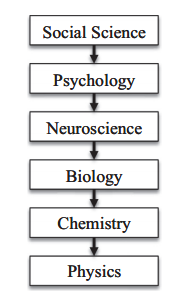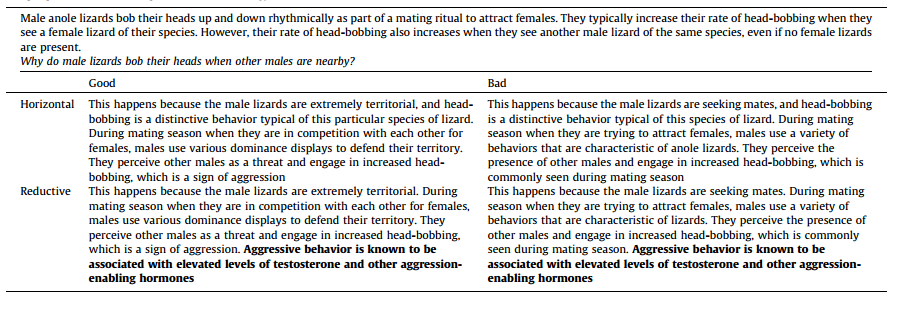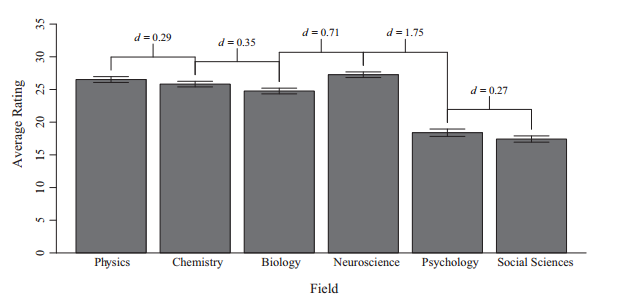Emily Hopkins and her colleagues at Penn noted that there is more than one possible explanation for the effect. It may be that people hold neuroscience in special esteem, or that they like the physicality of neuroscience (in contrast with the seeming intangibility of behavioral explanation), or perhaps it’s the reductiveness that holds appeal. Hopkins and her group focused on this last possibility. They presented subjects with good and bad explanations for phenomena in six different sciences and asked them to rate the quality of the explanations from -3 to 3. Some of the explanations were horizontal, and some were reductive, according to this hierarchy of sciences.
The researchers gathered some other data about participants that cast an interesting light on these findings. They found that those who had taken more science courses at the college level were better at discriminating good from bad explanations. That was not the case for participants who had taken more college-level philosophy courses (although these participants scored better on a logical syllogisms task).
Researchers also asked participants questions about their perceptions of these sciences. Questions concerned the scientific rigor, the social prestige, and the difference in knowledge between an expert and novice. The graph shows averages for the sciences where the three questions were combined into a single measure.
Although the effect is strongest for psychology it is helpful to know that the “seductive allure” effect is not restricted to brains. It seems that there is some expectation that part of how sciences explain our world is to break things it into ever smaller pieces. When that’s part of explanation, it sound like science is doing what it is supposed to do.



 RSS Feed
RSS Feed